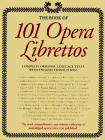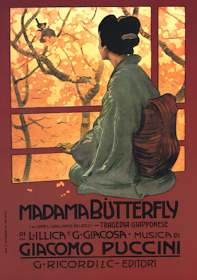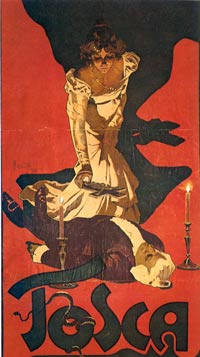|


|
 |
GIACOMO PUCCINI
Has history been tampered with?
Learn how and why Ancient Rome, Greece and Egypt were invented and crafted during Renaissance. Discover the Old Testament as a veiled rendition of events of Middle Ages written centuries after the New Testament. Perceive the Crusaders as contemporaries of The Crucifixion punishing the tormentors of the Messiah. What if Jesus Christ was born in 1053 and crucified in 1086 AD?
Sounds unbelievable? Not after you've read "History: Fiction or Science?" by Anatoly Fomenko, leading mathematician of our time. He follows in steps of Sir Isaac Newton, finds clear evidence of falsification of History by clergy and humanists. Armed with computers, astronomy and statistics he proves the history of humankind to be both dramatically different and drastically shorter than generally presumed.
|
|
 View opera TOSCA
Placido Domingo, Raina Kabaiwanska, Sherill Milnes
in dramatic opera film in original setting of Rome
 View opera MADAMA BUTTERFLY
Mirella Freni and Placido Domingo
in Jean-Pierre Ponnelle's beautiful opera film
|
|
|
|
|
|
|
|
Puccini and il Verismo
Puccini was born in Lucca on the 22nd of December 1858, he was the last of the
great Italian composers. Puccini, along with his brother Michele, who died young, were the fifth generation of a family of professional musicians and composers, living and working in and around Lucca, Tuscany Italy. All the previous generations of Puccini's were basically church composers and organists at Lucca's Cathedral - San Martino.
When Giacomo was just six years old his father died, he took over the position of choir master
and organist at San Martino Church. It was expected that Giacomo follow in the path of his
ancestors and therefore continue the long family tradition, however one night in 1876 all that
changed, when he and a friend walked all of thirteen miles to the city of Pisa to see a
production of Verdi's Aida. From this moment on Giacomo knew that his true passion would
only ever be opera and opera only.
|
In 1880, Puccini completed his studies at the Pacini Institute in Lucca, he had just finished
composing a mass, Messa di Gloria the fact that he wrote this encouraged his great-uncle
to help support his musical education, also a scholarship was granted from Queen Margherita.
Thereby allowing the young composer to enrol at Milan's Conservatorio, Milan and its famous
Teatro alla Scala was the place to be for all young up and coming composers.
For three years (1880 -1883) Giacomo continued his studies at the Conservatorio Reale under
Bazzini and Ponchielli, the composer of La Gioconda, he there composed as a leaving exercise
an orchestral piece, Capriccio sinfonico, this was performed by the students orchestra and
achieved great success at its performance.
 It foretold the gifts that were to be - of operas blending intense emotion and theatricality
with tender lyricism, colourful orchestration and a rich vocal line. Meanwhile the music publishing firm of Edoardo Sonzogno announced the first of severalcompetitions for a one-act opera (Mascagni's Cavalleria Rusticana was discovered in this way in 1889) Puccini then still a pupil of the Conservatorio, decided with Ponchielli's encouragement to take part in it. Ponchielli introduced Giacomo to a young librettist and journalist named Ferninando Fontana, who suggested to the young composer that it might be
an idea to compose an opera around the story Le Villi (the Witches). This a legend of brides,
who have been deserted by their lovers, they then are turned into spectres, dancing the
loved one to death. Subjects such as this were very popular in Italy at this time, especially
after the German romantic operas of Weber, and early Wagner, at a party, the result of the
competition was announced early in 1884, Puccini's name was not even mentioned,
unfortunately Puccini didn't win, however the opera was produced successfully in 1884 at Milan.
It foretold the gifts that were to be - of operas blending intense emotion and theatricality
with tender lyricism, colourful orchestration and a rich vocal line. Meanwhile the music publishing firm of Edoardo Sonzogno announced the first of severalcompetitions for a one-act opera (Mascagni's Cavalleria Rusticana was discovered in this way in 1889) Puccini then still a pupil of the Conservatorio, decided with Ponchielli's encouragement to take part in it. Ponchielli introduced Giacomo to a young librettist and journalist named Ferninando Fontana, who suggested to the young composer that it might be
an idea to compose an opera around the story Le Villi (the Witches). This a legend of brides,
who have been deserted by their lovers, they then are turned into spectres, dancing the
loved one to death. Subjects such as this were very popular in Italy at this time, especially
after the German romantic operas of Weber, and early Wagner, at a party, the result of the
competition was announced early in 1884, Puccini's name was not even mentioned,
unfortunately Puccini didn't win, however the opera was produced successfully in 1884 at Milan.

|
| top
|
|
|
 |
|
 |










 View opera TOSCA
View opera TOSCA
